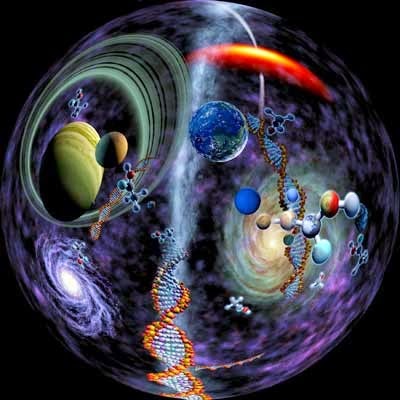Astronomy - Astrophysics logo.
British and Spanish scientists have discovered that at least two stars could be "hidden" behind Neptune, they argue in a study.
The solar system could contain more planets than expected
The solar system could house two additional planets, according to British and Spanish researchers deduct the unexpected trajectory of the various objects observed behind Neptune suffer the influence of the unknown planets.
In 2006, the International Astronomical Union withdrew Pluto's planet status given its small size which relates now to the category of dwarf planets, dropping the number of planets in the solar system to eight.
A debate for decades
This has not stopped the debate stirred astronomers around the world for decades: other planets exist beyond Pluto?
In a study published in the journal "Monthly notices of the Royal astronomical society letters" the researchers provide "at least two planets" are hidden behind Neptune.
"Unexpected orbital parameters"
The researchers based their particular deduction on the study of the orbital behavior of a dozen extreme Trans-Neptunian Objects (ETNO).
They have "unexpected orbital parameters" that "suggest that unseen forces affect their orbital distribution," said astrophysicist Carlos de la Fuente Marcos, the agency of Spanish scientific information Sinc.
Neptune
Number unknown
"We believe that the most likely explanation is that other unknown planets exist beyond Neptune and Pluto," said the researcher at the Complutense University of Madrid and co-author of the study with scientists from the University of Cambridge.
"Their exact number is unknown, because our data are limited, but our calculations suggest that there are at least two planets, and probably more, on the borders of our solar system," he added.
A possible revolution in astronomy
The authors of the study, however, recognize that their theory contradicts the currently accepted model of the formation of the solar system, according to which there are no other planets in circular orbit behind Neptune.
Moreover, the calculations are based on the study of a small number of objects, but researchers ensure that other results will be published in the coming months, broadening the sample. "If confirmed, our findings could revolutionize astronomy," considers Mr. Marcos Fuente.
Related link:
Monthly notices of the Royal astronomical society letters: http://mnras.oxfordjournals.org/
Images, Text, Credits: AFP/Wikimedia/NASA&ESA Hubble/Translation: Orbiter.ch Aerospace.
Cheers, Orbiter.ch



